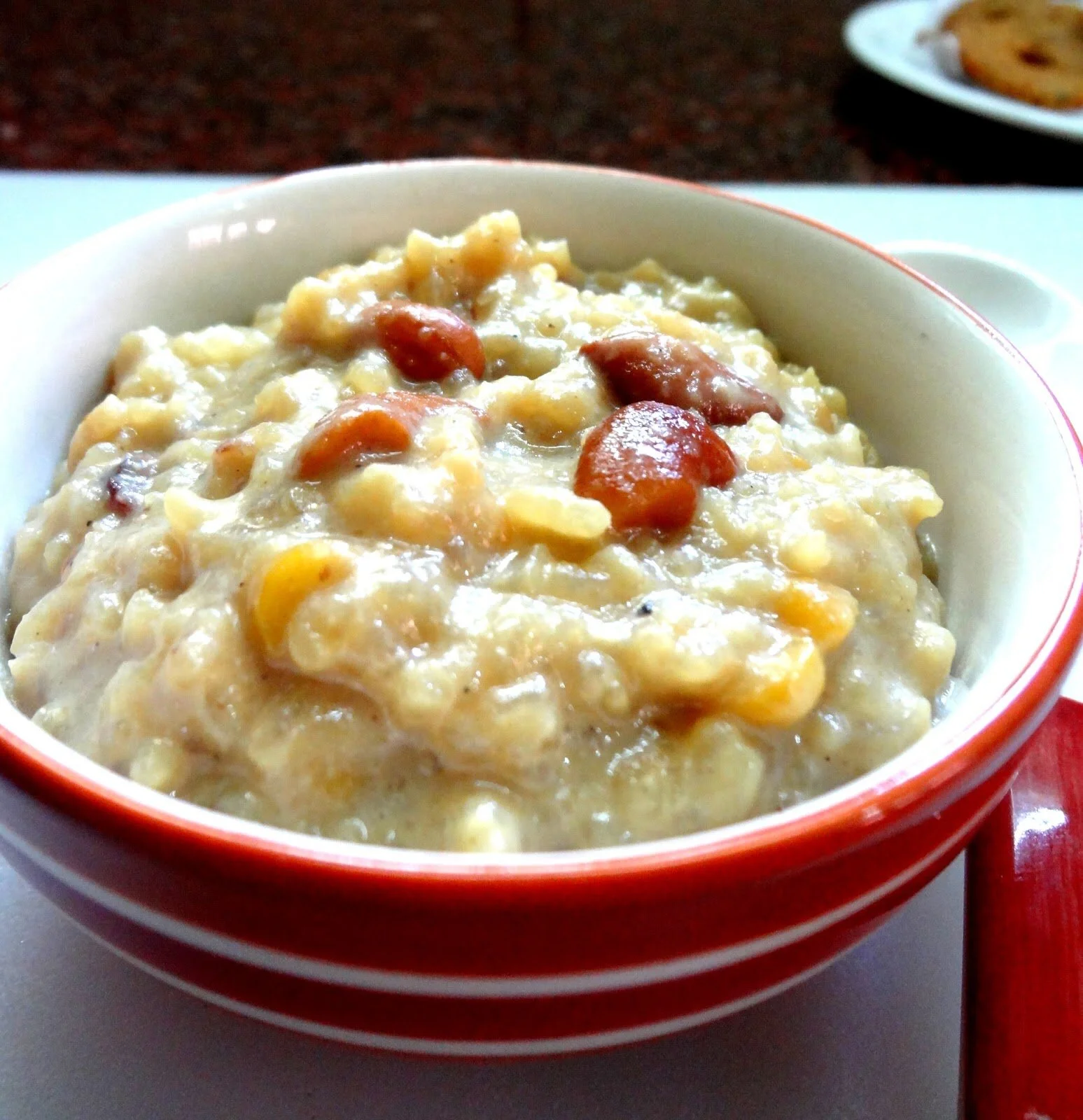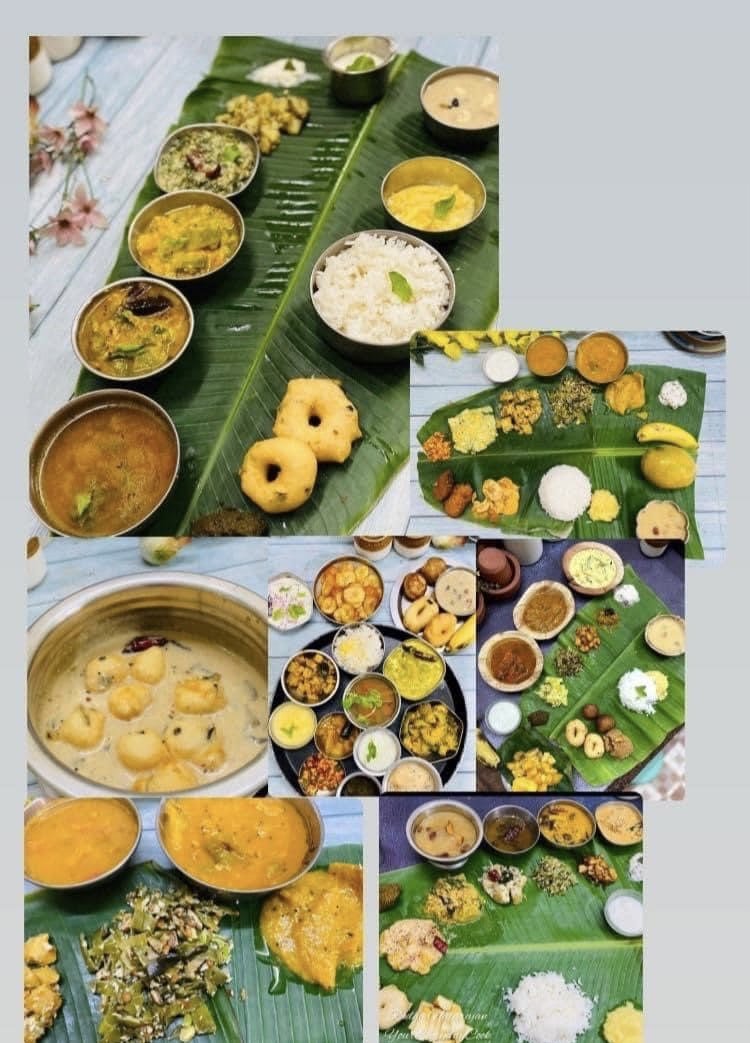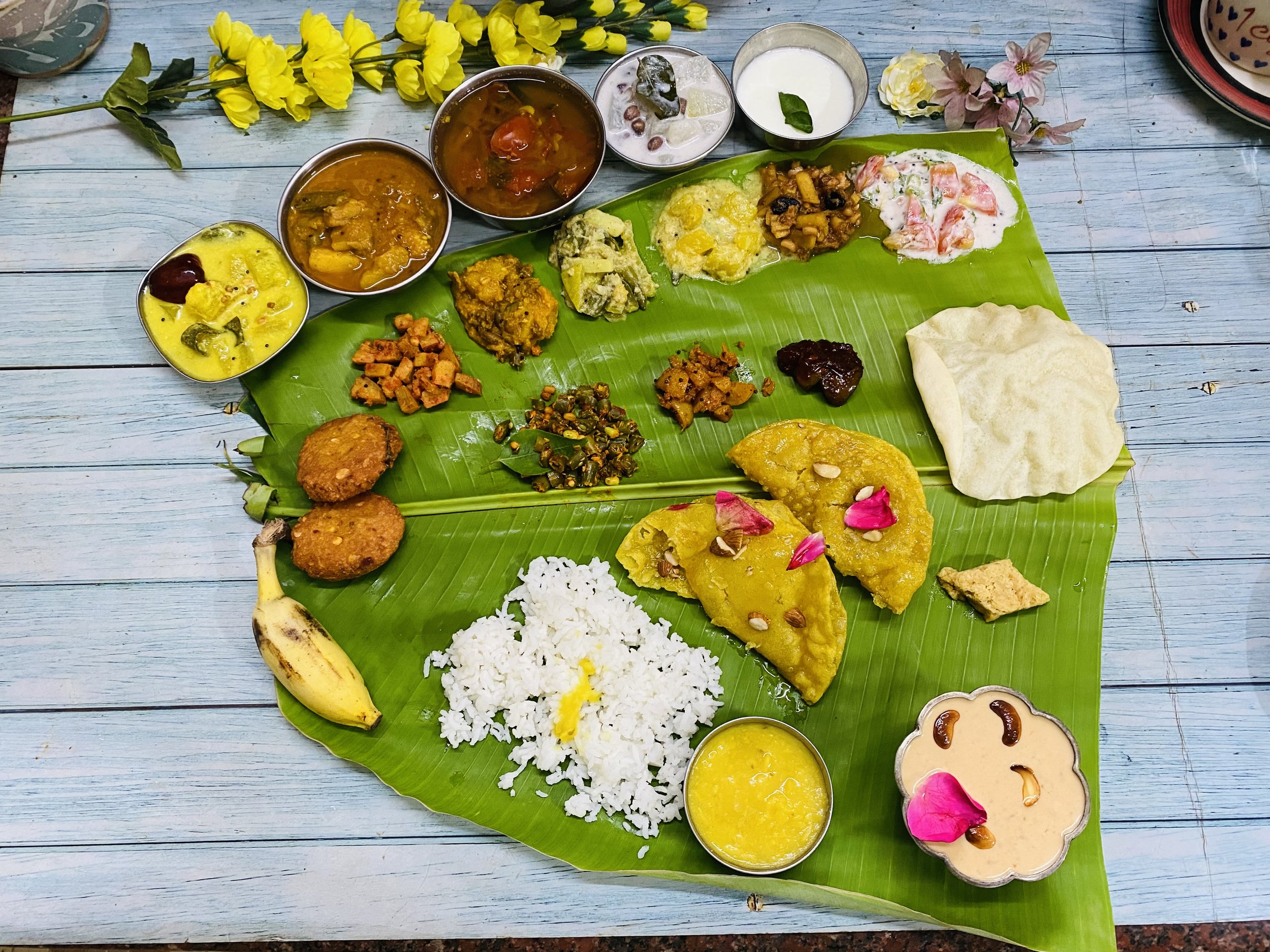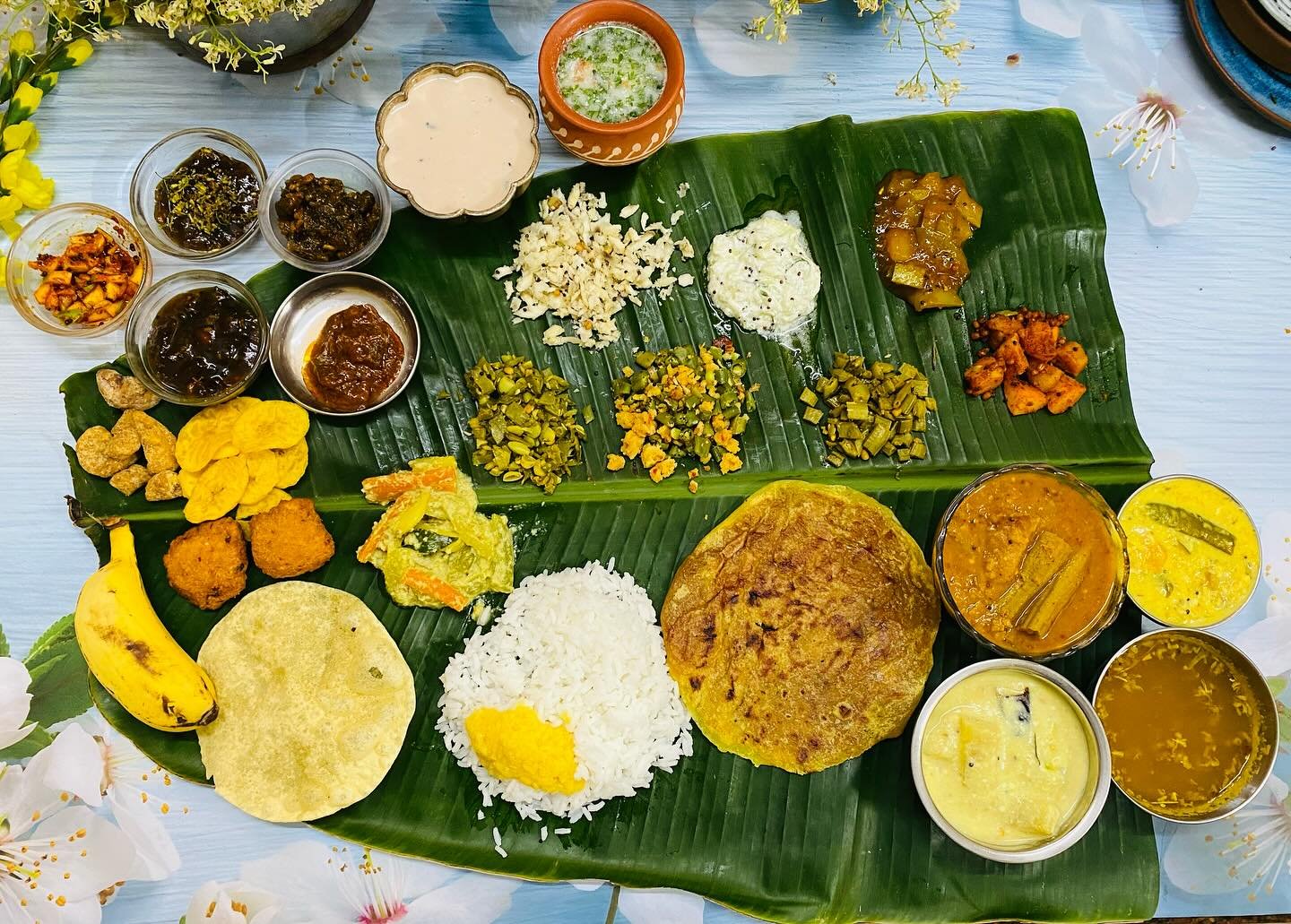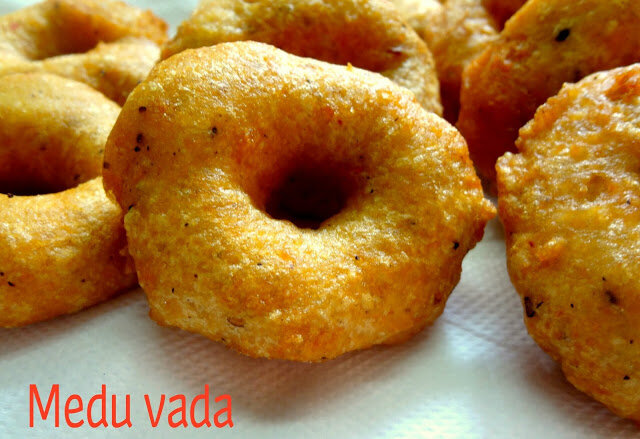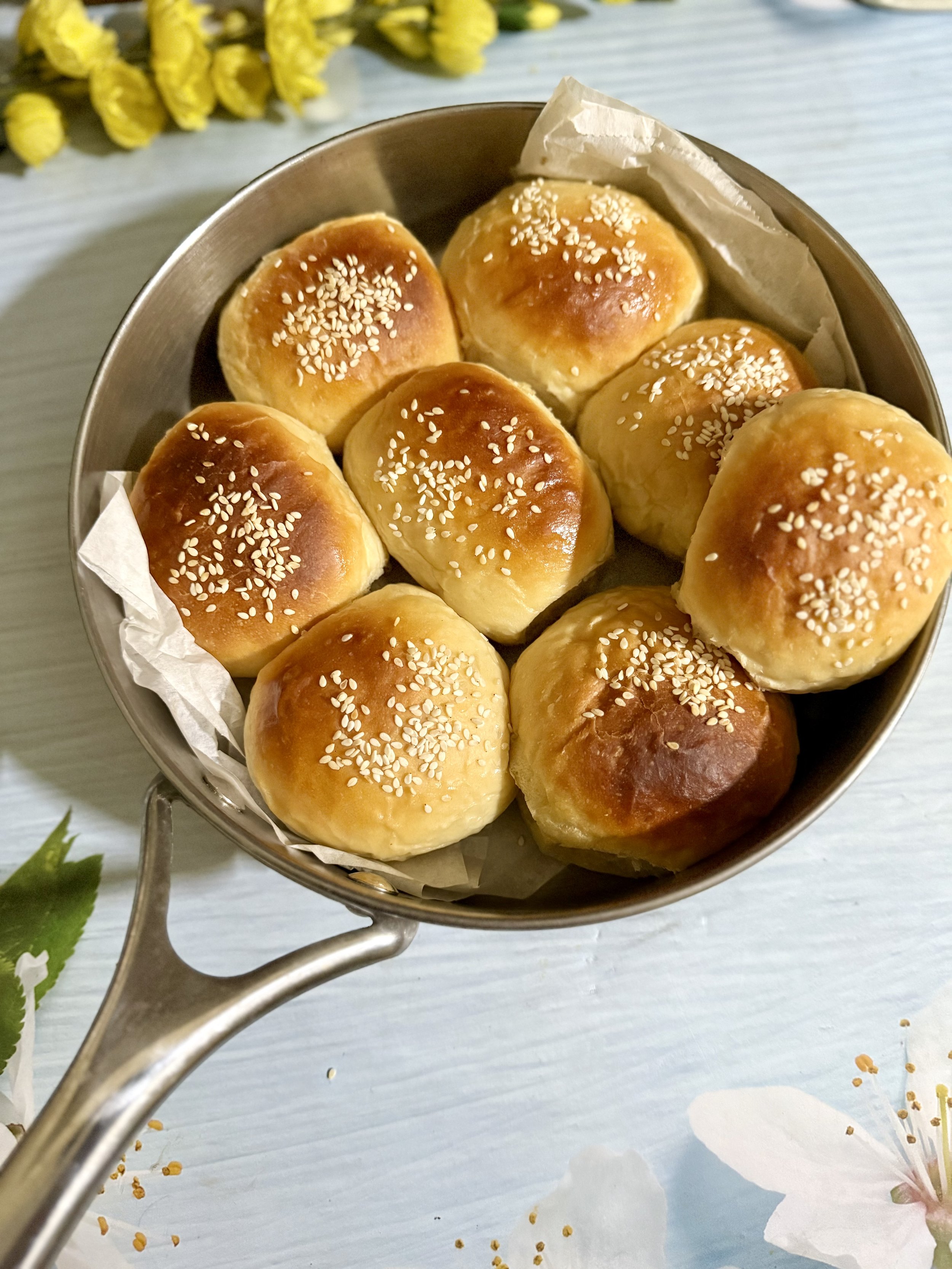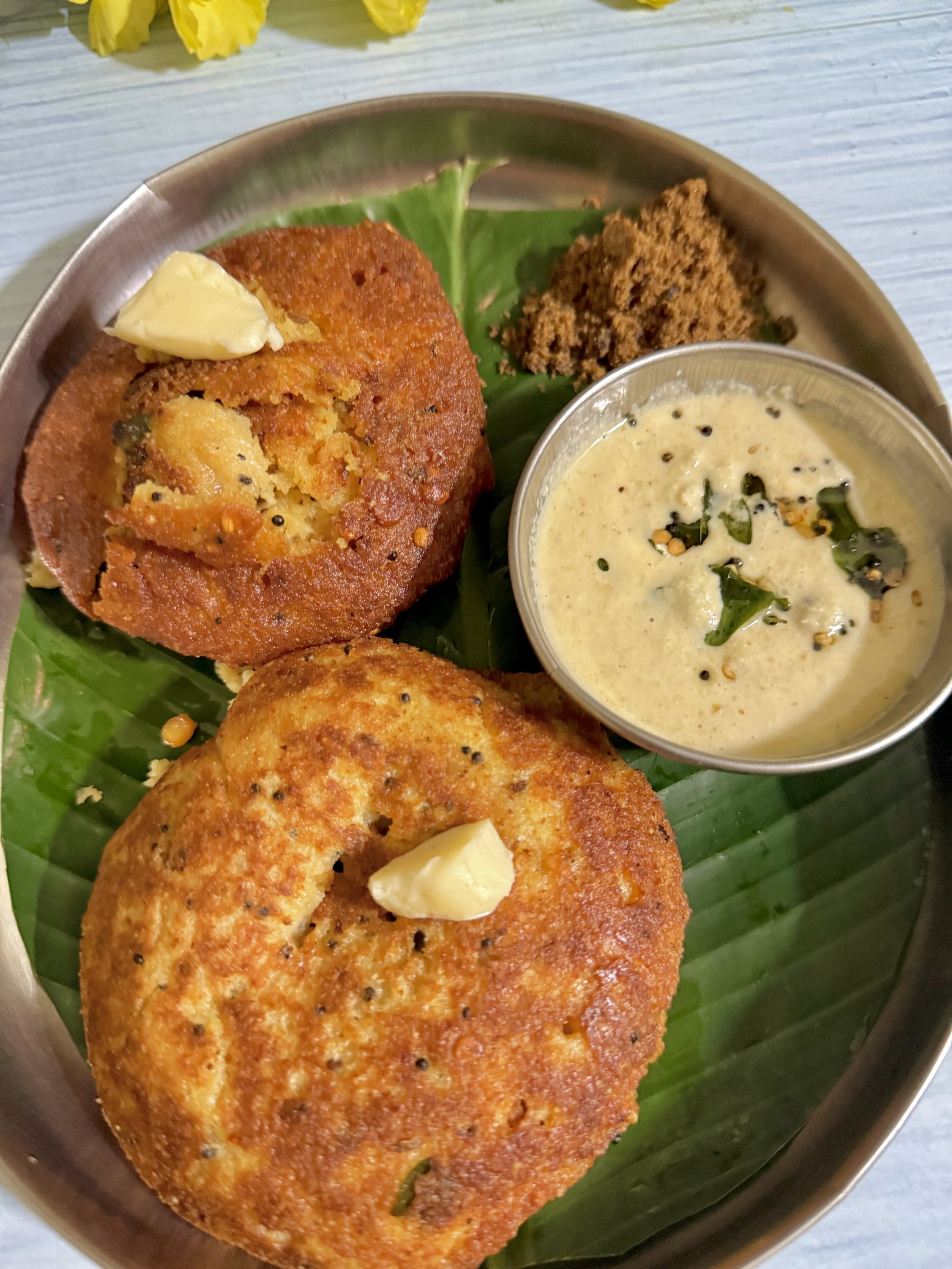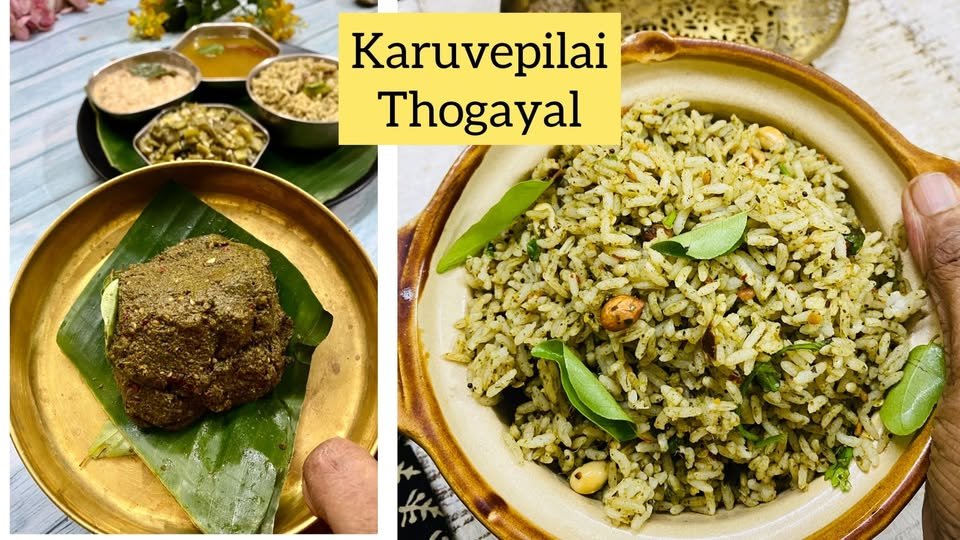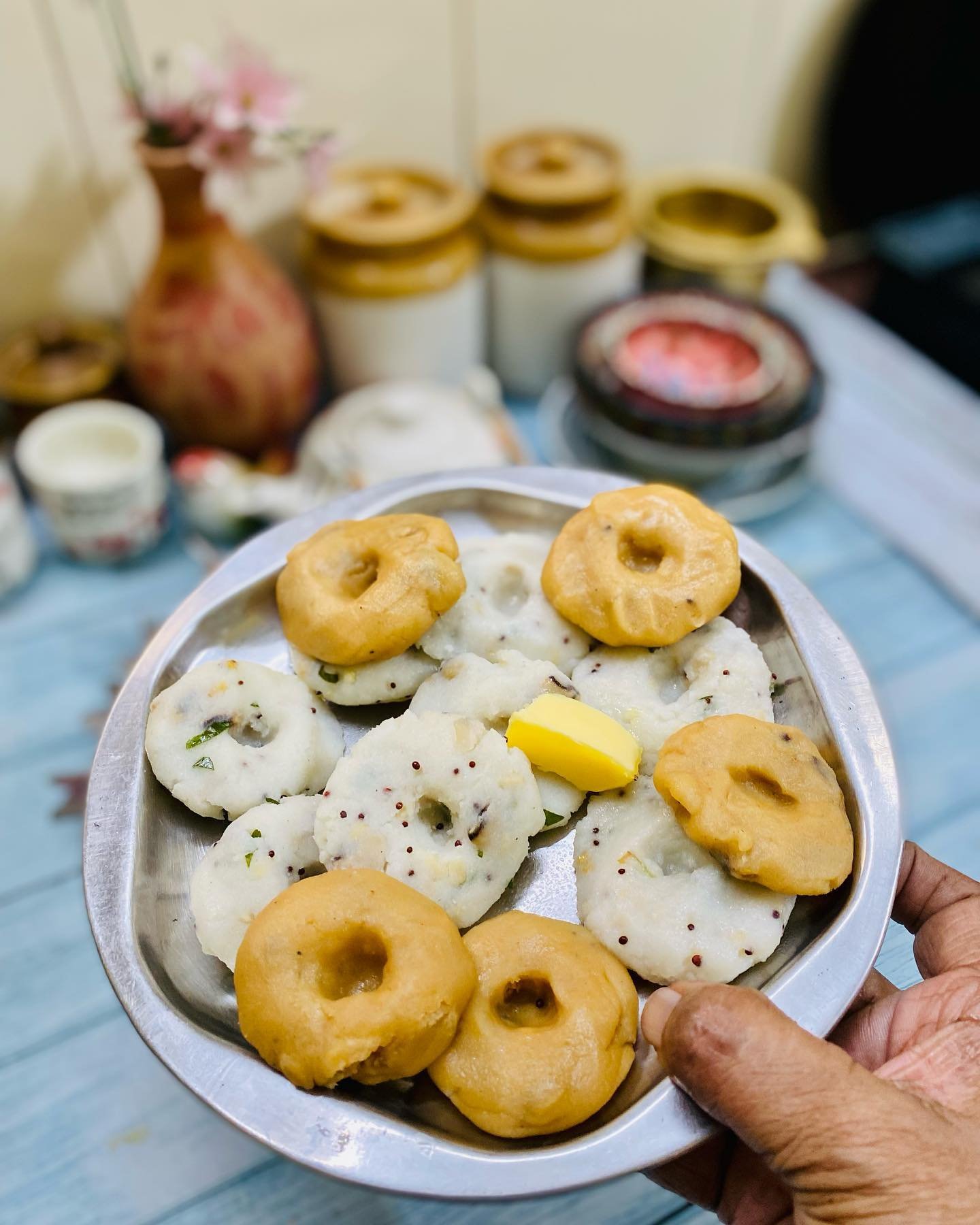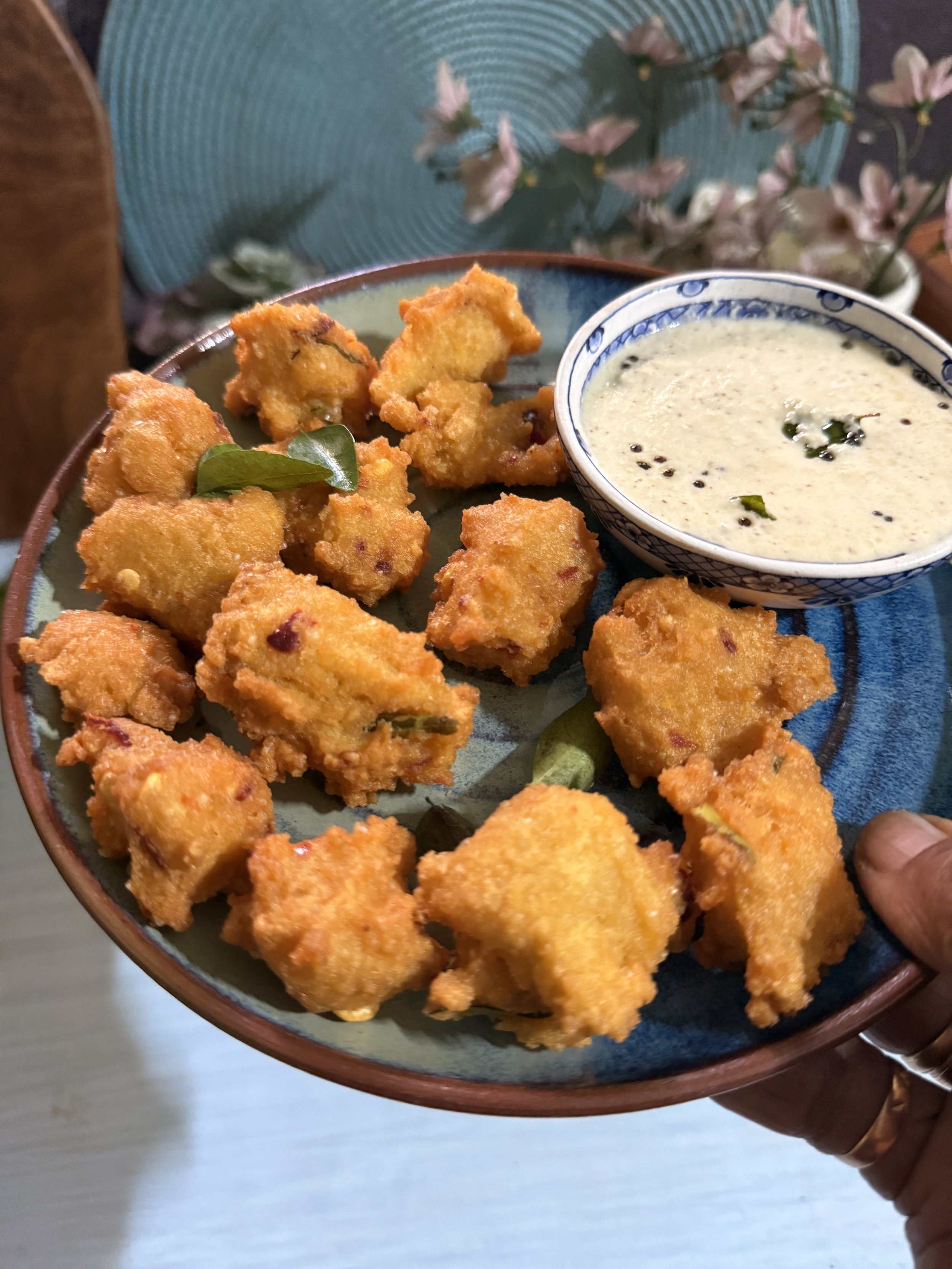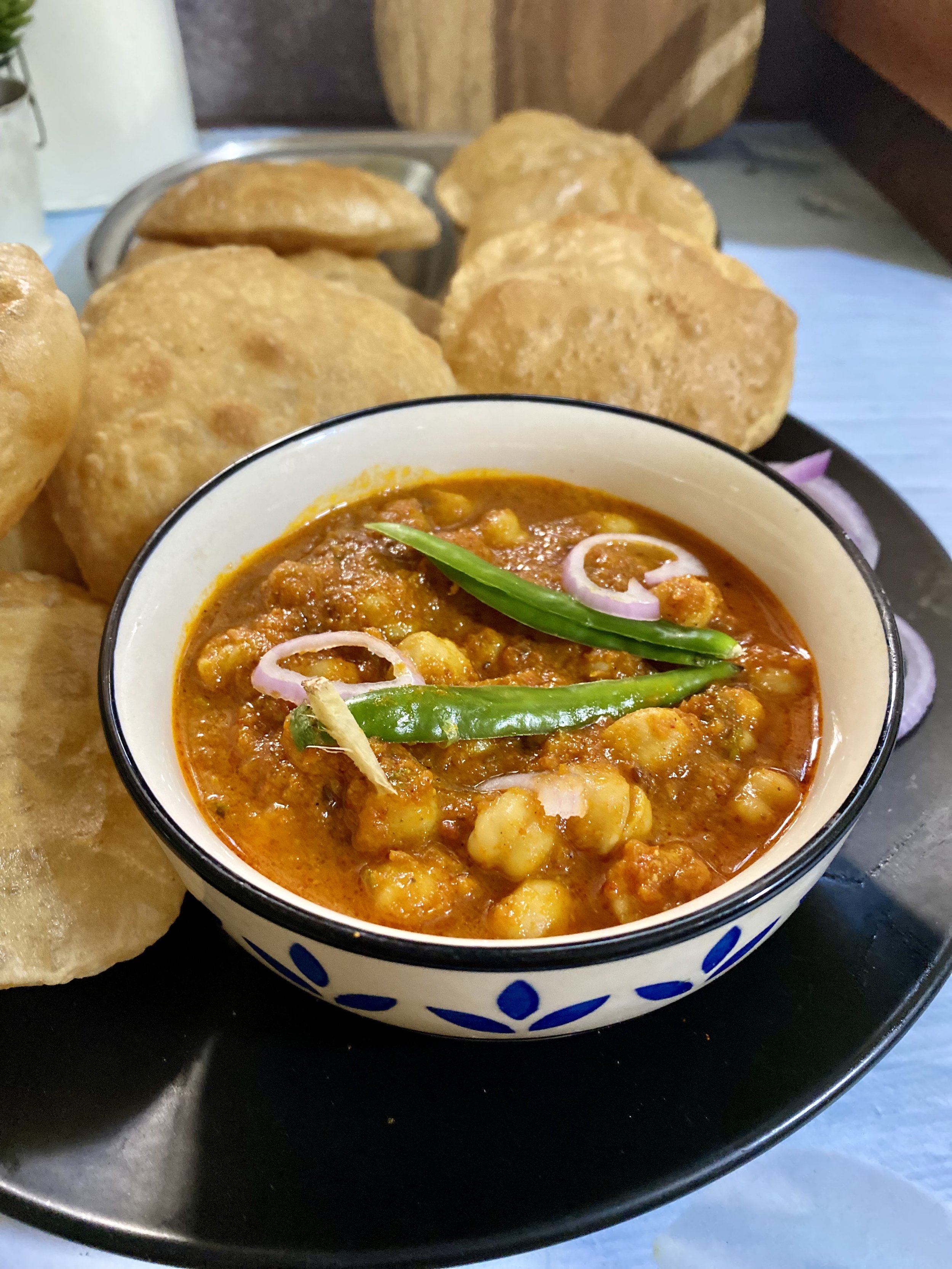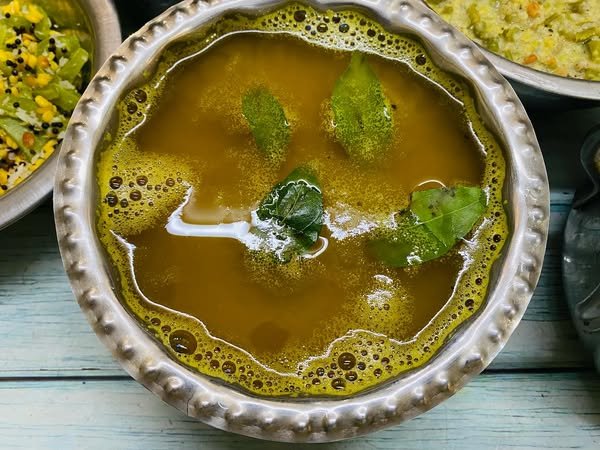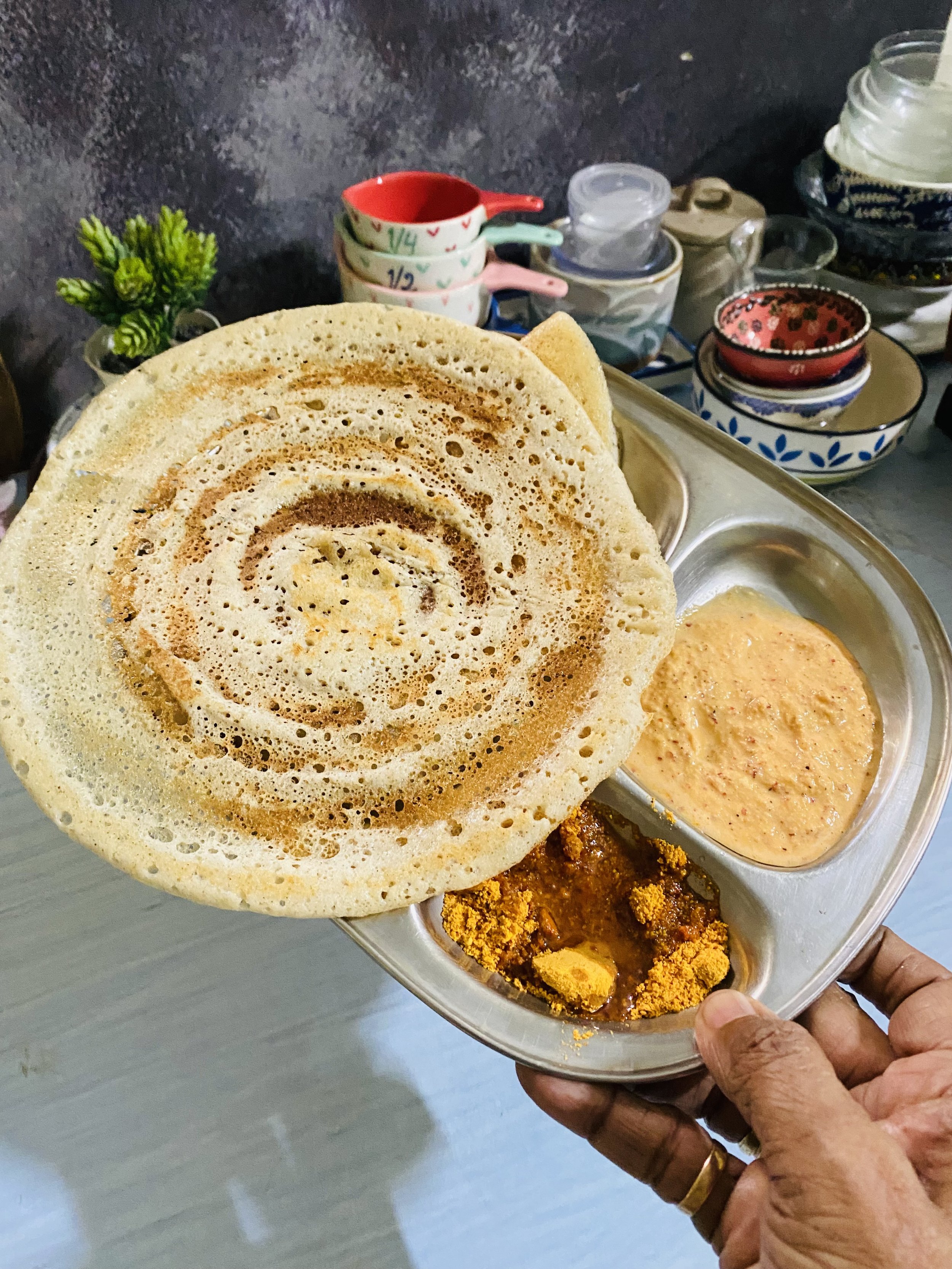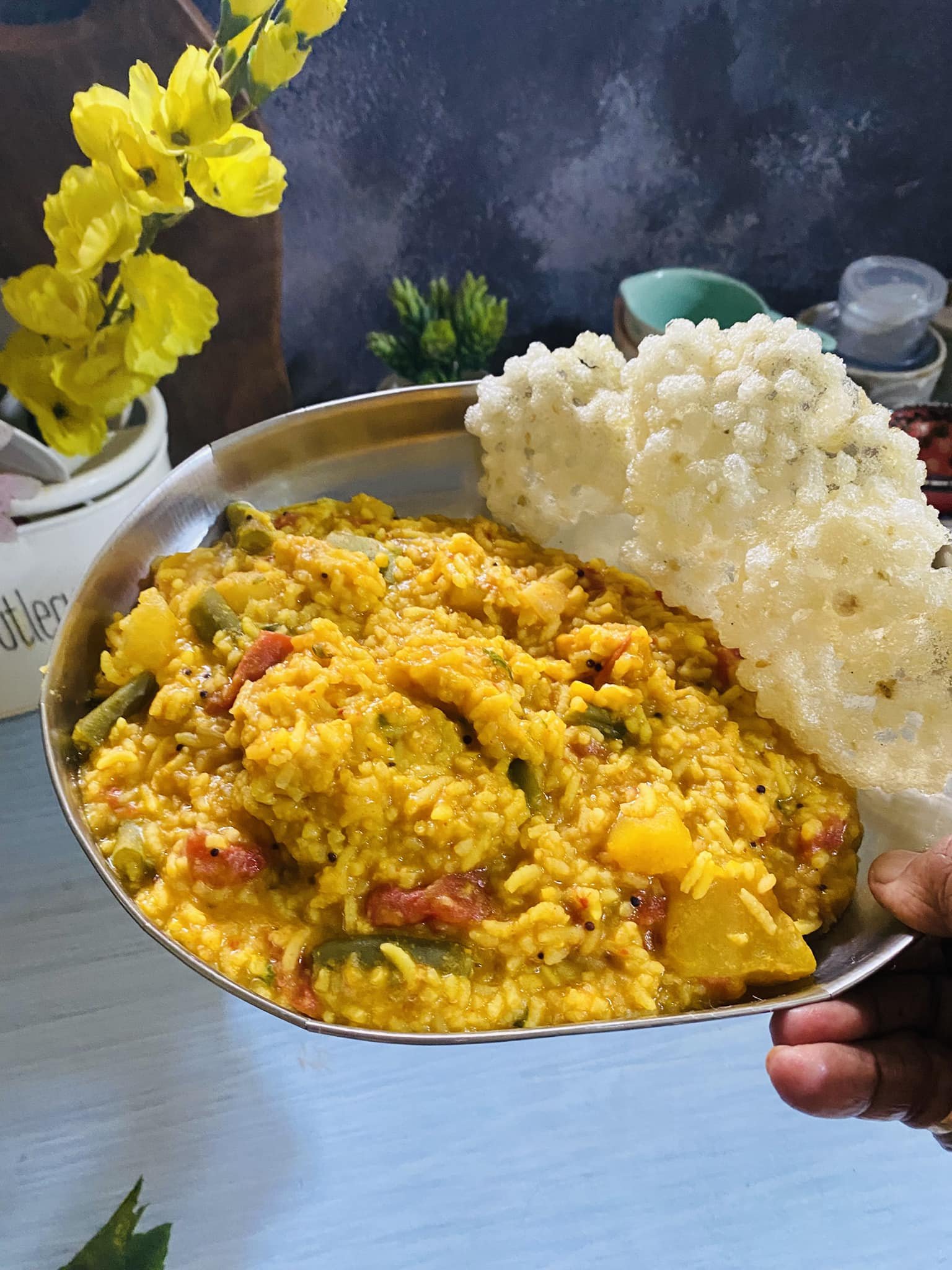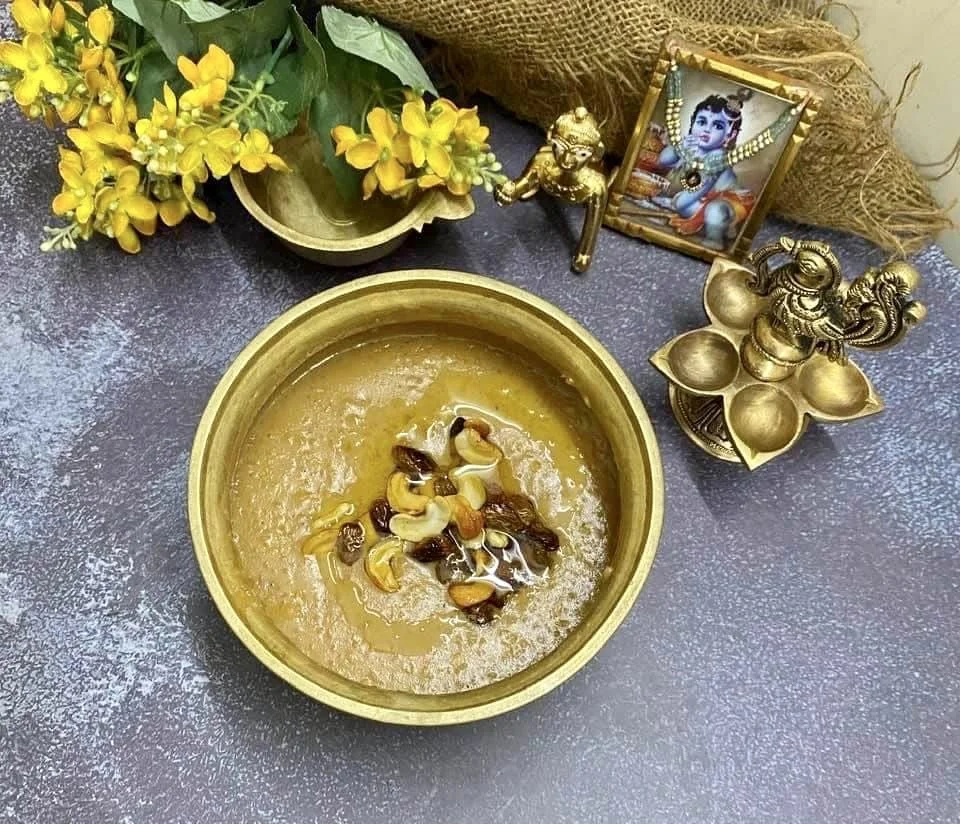Akkaravadisal
Akkaravadisal
Akkaravadisal is a traditional sweet dish from Tamil Nadu, particularly associated with the Iyengar community. It's often prepared during religious festivals and special occasions, especially in temples. This dish is similar to Sakkarai Pongal but richer, as it is made with generous amounts of ghee and milk, giving it a creamy texture and delightful taste.
Akkaravadisal is made by cooking rice and moong dal (split yellow lentils) in milk and ghee. Jaggery is then added to sweeten the dish, and it's flavored with cardamom. The dish is generously garnished with cashew nuts and raisins fried in ghee, adding a crunchy texture and enhancing the richness. The slow cooking of rice and dal in milk ensures a thick, pudding-like consistency that is both hearty and luxurious.
The final result is a fragrant, sweet, and creamy dish that melts in your mouth, with a subtle nutty flavor from the dal and a hint of spice from the cardamom. It's a comforting and indulgent dessert that holds a special place in the culinary traditions of Tamil Nadu.
Akkaravadisal is so lipsmacking and similar to sakkarai pongal but the taste is even more delicious as the rice and dal is cooked completely in milk and as the mixture cooks, the milk also thickens thereby adding extra creamy taste to the akkaravadisal.
This is a must prepare neivediyam in Marghazhi month, esp to be prepared on Koodaravalli day 27 th day . Sri Andal Nachiar sang a verse of Thirupavai on each day of Margazhi month (totally 30 verses) in praise of Lord Narayana. In the 27th verse, "Koodaarai vellum seer Govinda..."
Sri Andal imagines that at the end of Paavai Nonbu, she and other Gopikas are sharing sweet made of rice and ghee with Lord Narayana.
Hence the 27th day of Margazhi month is celebrated as Koodaravalli.Hence devotees will prepare this akkaravadisal and offer to the Lord Govinda and end the fast .
Ingredients
Raw rice - 1cup
Milk - 1 1/2 ltr to be added in stages
ghee 1/4 cup , can add more if you like
Moong dhal - 2 tbsp
pinch of nutmeg powder
pinch of cardamom powder
pinch of edible camphor
2 tbsp ghee to fry cashewnits and raisins
Jaggery - 2 1/2 cups
Method
Take a wide heavy bottomed pan like uruli a bronze heavy wide open vessel if you have one.
Clean both the rice and dal and dry roast them till a fine aroma wafts and turns golden in colour.
Add the milk and cook the rice , dal mixture on a slow fire or the other way is to pressure cook tilll the mixture gets very soft and will soften mushy when you press with your fingers. add milk at intervals if mixture is thickening .
In a separate pan melt the jaggery in little water and filter the syrup off the scum and sediments . I have followed the authentic old way of slow cooking in bronze vessel, while stirring ocassionally.If pressed for time , you can always rely on the good old pressure cooker but need to keep upto 10 whistles.
Add the jaggery to the rice , dal mixture and keep stirring slowly. add ghee at intervals .
In a small tadka pan , add some ghee , roast the cashew nuts and the raisins and pour this in the hot simmering Akkaravadisal.
Add the pinch of cardamom powder and the edible camphor. Add the saffron infused milk to the sweet and stir well.
The Jaggery milk mimxture would have now turned lightly thick but still not lumpy and a attained a nice golden milky texture in looks.
Unlike the sakkarai pongal the consistency of Akkaravadisal is thickly runny but not watery .
At this stage you can switch off the flame and serve with some more melted ghee on the top if you wish.
This is such a simple easy recipe which you can prepare in minutes with the help of pressure cooker.
Akkaravadisal
Watch my Youtube video on the making of Akkaravadisal . Do subscribe to my channel .
Browse my instagram posts . Follow me in Instagram





